New to poker and not sure where to begin? Whether you’re looking to play online or with friends at home, this guide on how to play poker for beginners will give you everything you need to start your journey. With just a bit of learning and practice, you’ll quickly improve your game and avoid costly beginner mistakes.
Below, you’ll find 10 crucial tips that every new player should know. These insights will help transform you from a losing player into someone who can play smart, stay confident, and maybe even start winning. Let’s get started!
These are some of the most important tips for poker beginners — designed to help you build a solid foundation and avoid expensive mistakes early on.
Contents
1. Play Fewer Hands, but Play Them Aggressively
3. Think About Your Opponent’s Hand
4. Play Against Weaker Players
7. Avoid High Stakes Too Early
8. Don’t Overplay Drawing Hands
10. Know the Rules of the Game
1. How to Play Fewer Hands Aggressively as a Beginner
One of the biggest mistakes beginners make is playing too many hands. Some players believe that “any hand can win,” and while that’s technically true, some hands win much more often and bring consistent profits — others just burn your bankroll.
If you’re serious about learning how to play poker for beginners, start by mastering hand selection. Play fewer, stronger hands — and play them with confidence.
As a beginner, your poker strategy should focus on avoiding weak hands and playing aggressively with the top ones. Don’t limp into pots. Learn to fold more — it’s your strongest move.
“Good hand selection is the foundation of every winning poker player. Remember that!”
Beginners Poker Strategy in Action
Smart beginners poker strategy starts with selecting strong hands and playing them aggressively. Avoid limping, fold weak hands, and value bet when you’re ahead.
Want to go deeper? Check out our strategy guides on how to play pocket aces, pocket kings, and pocket tens.
2. Learning to Play Poker: Why You Should Avoid Bluffing Too Much
Bluffing is a part of poker, but it’s not the foundation of how to win — especially when you’re just learning to play poker. Most winning players bluff less than you think.
Focus on getting value from your strong hands and avoid fancy plays. Bluffing takes timing, experience, and good reads — which beginners usually don’t have yet.
“Bluffing is optional — but knowing when not to bluff is essential.”
3. Beginner Poker Strategy: Think About Opponent’s Hands
Great poker players don’t focus only on their own cards. They try to figure out what their opponent might be holding. This is one of the most powerful ways to improve your poker decision-making.
Even if you hit a straight, it might not be enough if there’s a flush possible on the board. Learning how to play poker for beginners includes thinking beyond your own hand.
4. Beginners Poker Tip: Play Against Weaker Players
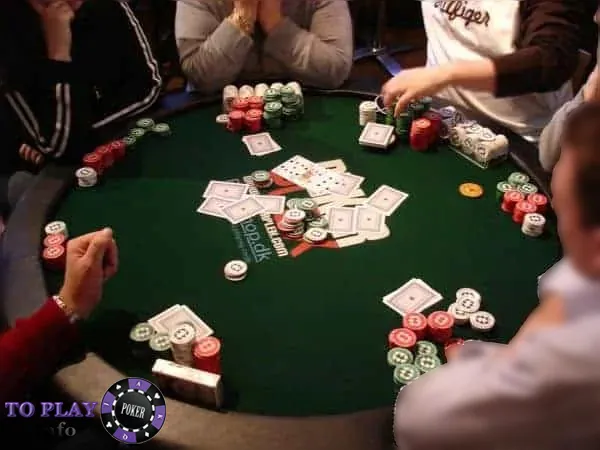
This tip sounds obvious, but many beginners ignore it. You’ll win more over time if your opponents make more mistakes than you do. Look for softer games and avoid tables full of tough regs.
Good beginners poker strategy means choosing the right tables — just like you choose your starting hands.
This is one of the most overlooked basics in beginners poker — always choose soft tables where you have an edge.
“Table selection is just as important as card selection.”
5. How Position Impacts Poker for Beginners
Position is one of the most important concepts in how to play poker for beginners. The later you act in a hand, the more information you have — and that’s a huge edge.
When you’re on the button, you act last in every betting round. That gives you control of the pot, better bluffing opportunities, and a chance to make more informed decisions.
“In Texas Hold’em, position can be more important than the cards you’re dealt.”
6. Stay Focused While Playing
Poker is not a game you can win by zoning out. Stay alert, even when you’re not in the hand. Watch how others play and learn from their patterns.
Every decision counts. Treat every session as a chance to improve. That’s how smart players get ahead — even at the lowest stakes.
7. Why Beginners Should Avoid High Stakes in Poker
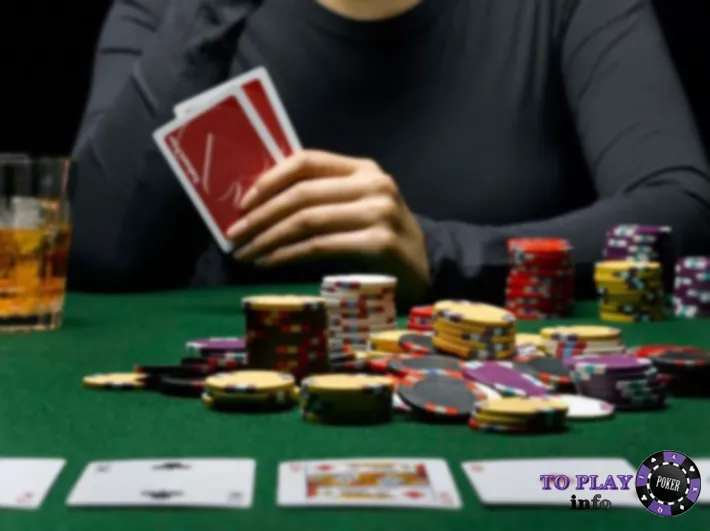
Don’t play limits you can’t afford or aren’t ready for. Start small. That’s the best way to build both confidence and experience.
Remember: even pros stick to bankroll rules. It’s not weakness — it’s smart poker strategy for beginners and pros alike.
8. Don’t Overplay Drawing Hands
Flush and straight draws can be tempting, but they’re not automatic winners. Know your odds, and don’t chase if the price isn’t right.
If you’re learning how to play poker for beginners, play draws with caution — not obsession.
9. Suited Cards in Beginner Poker: Why They’re Overrated
Suited cards look good but rarely turn into flushes. Don’t overvalue them, especially small ones like 6♠7♠. They often lose you more than they win.
Curious about hands like 6♠7♠? Learn more in our full guide on how to play suited connectors.
10. Know the Rules of the Game
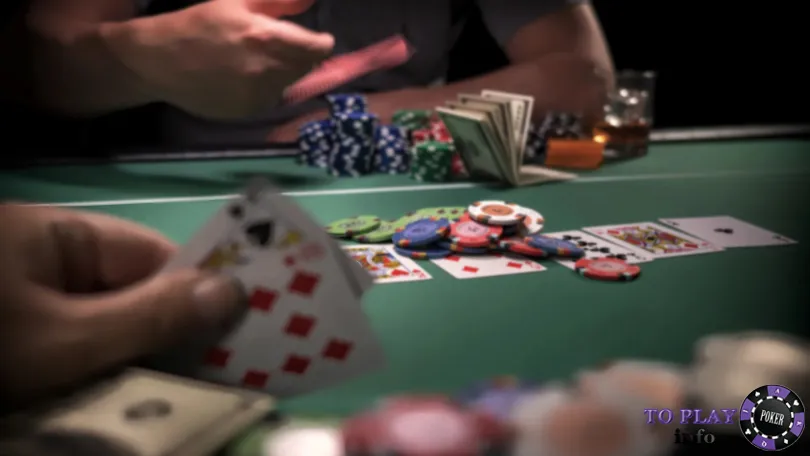
This should go without saying — but it’s often overlooked. You can’t win if you don’t know what beats what or how betting works.
Each poker variant has its own quirks. Learn the poker rules before you play. It’s the easiest edge you’ll ever gain.
“Learn the rules, or prepare to pay for not knowing them.”
If you’re new to the game, start by learning how to play basic poker — hand rankings, turn order, and betting rules form the backbone of your poker skills.
Your Complete Beginners Poker Guide in 2025
This article is your all-in-one beginners poker guide. From table selection to avoiding traps like suited junk and fancy bluffs — you now have a solid foundation.
FAQ: How to Play Poker for Beginners
Texas Hold’em is the most beginner-friendly poker variant. It has simple rules, is widely available online, and is the most popular version in the world. Most beginner poker guides focus on Hold’em.
You can start with as little as $5–$10 at micro-stakes tables online. Focus on learning and improving rather than trying to win big quickly. Always play within your bankroll.
Not often. Bluffing is risky if you don’t understand your opponents or the situation well. New players should focus on playing strong hands and learning game flow before attempting advanced bluffing strategies.
Yes! Many poker sites offer free play games, also called “play money” tables, where you can practice without real money. They’re great for learning rules and getting comfortable with the game.
That depends on how much time you invest. With consistent play and study, you can become a solid beginner in a few weeks. Mastery takes months or years — but every session helps you improve.
Ready to Play Real Poker Online?
Once you’ve learned the basics of how to play poker for beginners, it’s time to put your knowledge into action. Start your poker journey on trusted platforms that welcome new players.
- 🎯 CoinPoker — play with crypto, no KYC, and instant withdrawals.
- 🔥 Tigergaming Poker — soft games, huge bonuses, and reliable cashouts.
Tip: Start at micro-stakes tables and apply the strategies you’ve learned here. Focus on playing solid hands and gaining experience — that’s how real poker players grow.
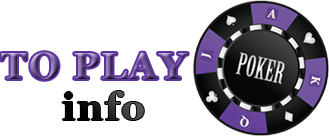
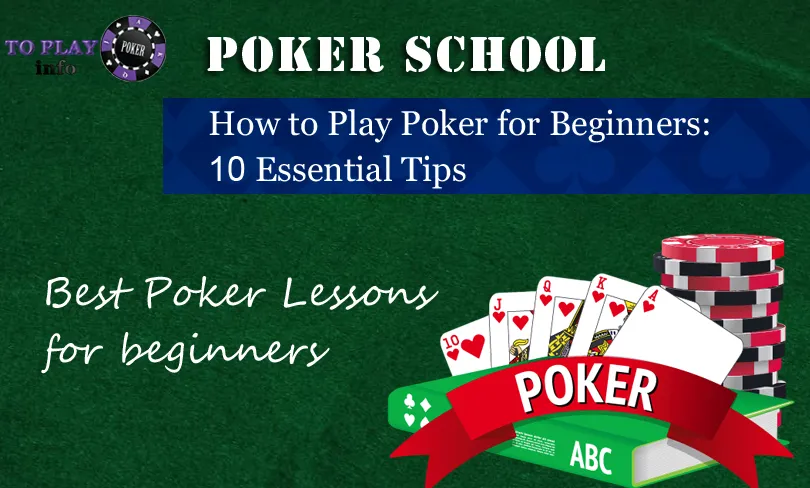
Facebook Comments